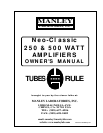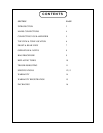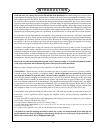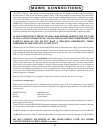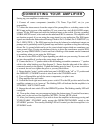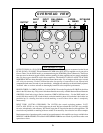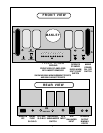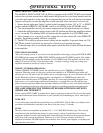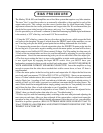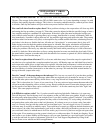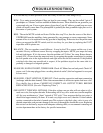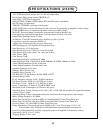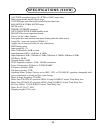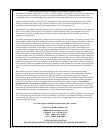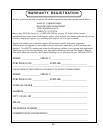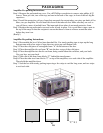
INTRODUCTION
Tried and true: The Manley Neo-Classic 250 and 500 Watt Monoblocks have been refined over years and years
of development. Reliability that you can depend on combined with musical accuracy and emotional authority is what
these amplifiers promise and deliver. They are able to switch operation modes allowing the listener to choose between
the sonically seductive qualities of triode and the more powerful tetrode configuration. We use big, beefy reservoir
capacitors in the high voltage supplies giving plenty of instant energy for dynamic performance of transient peaks
and bass impact and weight which often exceeds that of rival solid-state amplifiers. We run high voltages on the plates
of the output tubes but operate them at lower current which will result in their longer life. Although each output tube
has its own bias-adjust, we carefully fit each amplifier with computer-batched tubes for best performance. The bias
adjustment pots and measuring points are conveniently located behind the oval front panel insert on the faceplate.
To avoid a heavy power drain when the cold amplifier is first switched on, we conceived a “Soft-Start” mode which
also functions as an “Ever-Warm” position allowing the amplifiers to be always warmed up for pleasurable listening.
Each amplifier only consumes 30 watts of power in Ever-Warm mode. A blinking green LED reminds the user that
the amplifier is in warm-up mode because as all the power supplies are at half-voltage, the amplifier will still play
tunes (albeit not-so-great-sounding-tunes) when the Ever-Warm mode is engaged.
We added a front-panel mute switch and created a new angled-back chassis to make it easier to hook up the
interconnects, speaker cables, and IEC power cord. In our own in-house magnetics department, our R&D team
completely redesigned all of our output transformers in 1998 with the goal to reclaim that luscious rich mid-range
of our vintage designs. In 2000 the amplifiers were completely overhauled once again. We also specifically set out
to achieve a deeper bottom register at higher power with lower distortion. Hours and hours of listening tests,
measurements, and fine-tuning brought an exciting and stunning result to our ears. We hope you will agree.
Please read over this entertaining and enjoyable owner's manual carefully as it contains information essential
to the proper operation and maximum enjoyment of this precision audio instrument.
Thank you again, and please enjoy your new amplifiers! (and the clever Owner's Manual.)
UNPACKING: Unpack the units carefully and make sure that all supplied accessories are present. Carefully
examine all items for any possibility of shipping damage. All the output tubes are proteced by a grey foam
surround and this must be removed before you turn on these amplifiers! Remove the tube cage/covers, then
extract the grey protective shipping foam. Replace the cages or you can leave them off. Whatever you like. After doing
this, the tubes should be standing at attention in their sockets, and should show no signs of distress such as chipped
glass, loose internal components or obvious breakage. If the amplifier is damaged or fails to operate, notify the shipper
or your dealer or us or your local authorities immediately. Or if you suspect The Shipping People threw it off the
airplane and onto your front porch whilst flying overhead at 30,000 feet, notify the shipping company without delay
and complain to them as we only guarantee these amps to be able to survive a drop of 23,487 feet or less.
Your amplifiers were packed by Manny Q. with extreme love. The sturdy box includes an assortment of protective
foam pieces, several superfluous plastic baggies, the amplifier chassis, and the following components and
accessories:
a) 1 each, 6 foot IEC 3-conductor power cable appropriate for the voltage system in your country (that you will probably
replace with an expensive audiophile cord anyway.)
b) 1 each, Owner’s Manual (that we hope you will keep reading.)
c) 1 each, little cheapo Multi-Meter.
(So you can set your bias. We saved you a trip to Radio Shack. We figured you spent all this money on the amps, we might
as well throw in a little multimeter for ya...)
d) "a couple" each, spare B+ fuses...just in case absolute power corrupts absolutely.
It is prudent to retain the shipping materials for future use, as they are custom-formed for the amp and will
greatly minimize the chance of shipping-related damage should you ever need to put your precious 250's or
500's in the careless hands of The Shipping People again.
3



